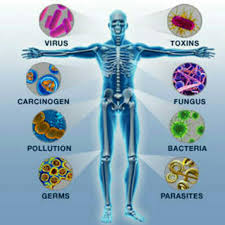How to Strengthen Your Immune System During Winter
Learn how to boost your immune system and prevent colds and flu during the colder months.

Discover effective tips to strengthen your immune system during winter. Stay healthy and fight off seasonal illnesses with these expert strategies.
The Importance of a Strong Immune System in Winter
Winter brings colder temperatures, shorter days, and a higher risk of seasonal illnesses like colds, flu, and respiratory infections. To stay healthy during this time, it’s crucial to focus on bolstering your body’s natural defenses.
In this article, we’ll explore proven strategies to strengthen your immune system during winter, ensuring you stay energized and illness-free throughout the season.
Understanding Your Immune System
Your immune system is a complex network of cells, tissues, and organs that work together to protect your body from harmful pathogens like viruses and bacteria.
How Winter Affects Your Immune System
Cold weather can weaken the immune response for several reasons:
- Reduced Sunlight: Decreases vitamin D production, which is vital for immune function.
- Increased Indoor Time: Promotes close contact, increasing the spread of viruses.
- Seasonal Stress: Holiday pressures and shorter days can heighten stress levels, weakening immunity.
Key Components of a Healthy Immune System
To effectively strengthen your immune system during winter, focus on these core aspects:
- A nutrient-rich diet.
- Regular physical activity.
- Adequate rest and stress management.
Top Strategies to Strengthen Your Immune System During Winter

1. Eat a Nutrient-Dense Diet
Your diet plays a significant role in immune health. Focus on:
- Vitamin C-Rich Foods: Citrus fruits, strawberries, and bell peppers help boost white blood cell production.
- Vitamin D: Fatty fish, eggs, and fortified dairy products support immune cell function.
- Zinc: Found in nuts, seeds, and legumes, zinc helps reduce inflammation and fight infections.
- Probiotics: Yogurt, kefir, and fermented foods like kimchi enhance gut health, which is closely tied to immunity.
Propolis: Nature’s Powerful Immune Booster
Introduction
Propolis, often referred to as “bee glue,” is a natural resin-like substance produced by bees. It is made from plant resins, beeswax, and saliva, and serves as a protective sealant for their hives. For centuries, humans have harnessed the health benefits of propolis, using it for its antimicrobial, anti-inflammatory, and immune-boosting properties.
This article explores what makes propolis a powerful natural remedy, its health benefits, and how to use it effectively.
Propolis is a sticky, brownish substance that bees create to repair hive structures, prevent infections, and maintain a sterile environment. It’s packed with bioactive compounds, including flavonoids, phenolic acids, and essential oils, which contribute to its therapeutic properties.

Key Components of Propolis
The composition of propolis varies depending on the region and plants bees have access to, but it generally contains:
- Flavonoids: Potent antioxidants that combat free radicals.
- Polyphenols: Promote anti-inflammatory and antimicrobial effects.
- Vitamins and Minerals: Includes vitamin B, C, and trace minerals like zinc and magnesium.
Foods to Avoid
- Processed sugars and refined carbs can suppress immune activity.
- Excessive alcohol can weaken your body’s defense mechanisms.
2. Stay Hydrated
Hydration is essential, even in colder months when thirst may be less noticeable.
- Why It Matters: Proper hydration supports the transport of nutrients and removal of toxins, both critical for a strong immune system.
- What to Drink: Opt for water, herbal teas, and broths to stay hydrated and warm.
3. Get Enough Sleep
Sleep is when your body repairs and strengthens itself.
- Adults need 7-8 hours of quality sleep per night.
- Poor sleep disrupts the production of cytokines, proteins that fight infection.
Tips for Better Sleep in Winter
- Stick to a consistent bedtime.
- Create a cozy sleep environment by keeping your bedroom dark and slightly cool.
- Avoid caffeine and screens before bed.
4. Exercise Regularly
Moderate physical activity enhances circulation, helping immune cells move through the body more efficiently.
- Aim for at least 150 minutes of exercise per week.
- Activities like walking, yoga, and swimming are excellent options during winter.
Avoid Overtraining
Excessive exercise can have the opposite effect, suppressing immune function. Listen to your body and prioritize rest when needed.

5. Manage Stress Effectively
Chronic stress raises cortisol levels, which can weaken your immune system over time.
- Practice Mindfulness: Techniques like meditation and deep breathing reduce stress.
- Take Breaks: Step away from work or screens to recharge mentally.
- Seek Support: Talking to friends or a therapist can provide relief from winter-related stress.
6. Support Your Body with Supplements
While a balanced diet is ideal, supplements can provide extra support during winter.
- Vitamin D: Essential in winter months when sunlight is limited.
- Vitamin C: Helps reduce the severity and duration of colds.
- Elderberry Extract: May reduce cold and flu symptoms.
- Probiotics: Maintain gut health and support overall immunity.
Consult a Doctor First
Before starting any new supplement, speak with a healthcare professional to ensure it’s right for you.
7. Stay Warm and Hygienic
Colder temperatures and seasonal viruses make hygiene and warmth crucial.
- Dress in Layers: Protect yourself from the cold with warm clothing.
- Wash Hands Frequently: Use soap and water for at least 20 seconds to reduce germ transmission.
- Avoid Touching Your Face: Prevent germs from entering your system through the nose, mouth, or eyes.
The Role of Mental Health in Immune Function
How a Positive Mindset Boosts Immunity
- Reduces stress-induced immune suppression.
- Encourages healthier lifestyle choices.
- Promotes better sleep and relaxation.
Activities to Cultivate Positivity
- Practice gratitude daily by writing down three things you’re thankful for.
- Engage in hobbies or activities that bring you joy.
- Spend time with loved ones to foster emotional well-being.
Building Long-Term Immunity
Strengthening your immune system during winter is not just about short-term changes; it’s about developing habits that sustain your health year-round.
Gradual Lifestyle Adjustments
- Incorporate one healthy habit at a time, such as eating more vegetables or starting a light exercise routine.
- Stay consistent, as immunity builds over time with regular practices.
Conclusion: Take Charge of Your Winter Health
Winter may pose unique challenges, but with the right strategies, you can protect yourself from seasonal illnesses and enjoy a vibrant, healthy season. By focusing on nutrition, sleep, exercise, and stress management, you can effectively strengthen your immune system during winter and beyond.
Remember, prevention is always better than cure. Start implementing these tips today to safeguard your health and enjoy the colder months to the fullest.
How to Strengthen Your Immune System During Winter – https://www.health.harvard.edu/staying-healthy/how-to-boost-your-immune-system



